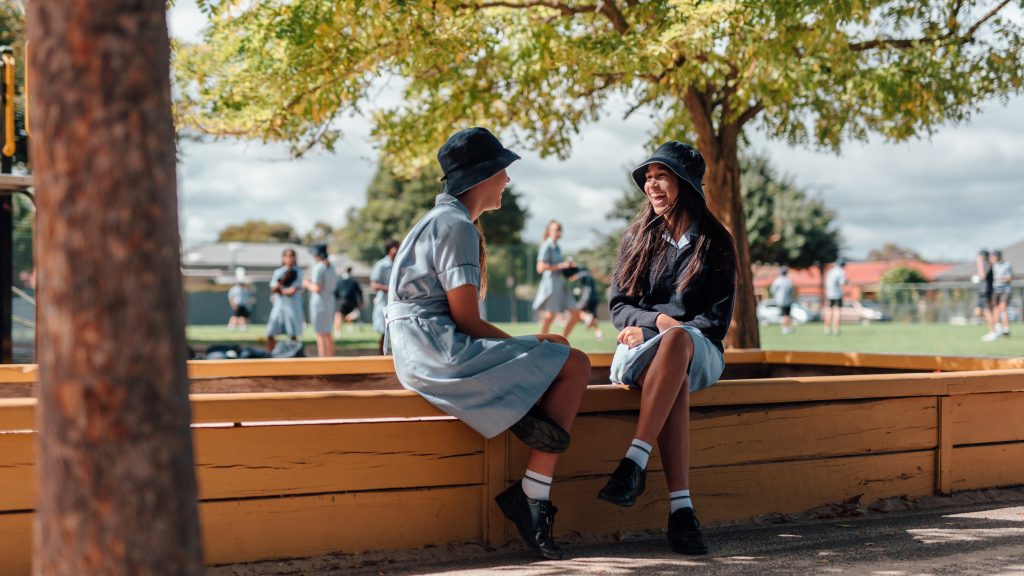Year 11 Subjects – Physical Education
Level: Stage 1
Subject Name: Stage 1 Physical Education
Prerequisites: Year 10 Physical Education (one semester minimum)
Assumed knowledge: Year 10 Physical Education
Course Summary
Physical Education is a 10-credit subject (one semester) or a 20-credit subject (full year) at Stage 1, and a 20-credit subject at Stage 2 (full year). This Stage 1 course has three focus areas: In Movement, Through Movement and About Movement preparing students for Stage 2 Physical Education.
In Movement, students explore physical activity by extending and applying their knowledge of movement concepts and strategies and skill learning. They investigate how the body responds to physical activity and apply biophysical and psychological knowledge to improve performance and/or participation in physical activity. The key ideas and considerations below provide a guide for learning.
Through Movement, students explore physical activity through movement concepts and strategies with a sociocultural lens. They explore barriers and enablers to physical activity, identifying how personal, social, and cultural factors affect participation. Students initiate and contribute to developing strategies that promote equity and inclusivity through a range of theme-based games, sporting and physical activities. They reflect on the success of these strategies in building confidence and motivation, as well as the improvement in the learning environment for themselves and others. The key ideas and considerations below provide a guide for learning.
About Movement, students develop theoretical knowledge to understand the richness and diversity of movement experiences. Physical activity contexts enable individuals to apply their knowledge to real-life experiences to evaluate participation and performance outcomes.
Assessment
Assessment at Stage 1 is school based. The following assessment types enable students to demonstrate their knowledge, understanding and learning:
- Internal Summative Assessment:
- Assessment Type 1: Performance Improvement (two tasks each weighted 25%, total of 50%)
- Assessment Type 2: Physical Activity Investigation (two tasks each weighted 25%, total of 50%)
- Internal Formative Assessment:
- Formative assessments include topic tests, performance improvement in practical units, game and performance analysis, laboratory reports and others.
Course content
Units of work that students may undertake across the year preparing them for Stage 2 Physical Education include:
- Exercise Physiology and Participatory Perspectives of Physical Activity
- Specific Fitness and Talent Identification
- Energy, Fitness, Training Principles, Methods and Physical Activity
- Sports Nutrition (preparation, pre-game, mid=game and post game/recovery)
- Skill Acquisition and Motor Learning
- Game Analysis and Tactical Awareness
- Functional Anatomy and Biomechanics
- Sport Psychology
- Equity - Barriers and Enablers
Practical Units conducted over the course of the year may include:
- Athletics (selected events)
- Badminton
- Basketball
- Fitness Identification
- Netball
- Officiating and Coaching courses
- Specific Strength and Conditioning Programs
- Squash
- Table Tennis
- Team Handball
- Touch Football
- Ultimate Frisbee
- Volleyball
Practical units that are chosen are based on the class size, student’s skills and ability levels promoting individual and group success.
Uniform Expectations
As part of Health and Physical Education lessons, students are required to wear the correct PE uniform consisting of:
- Emmaus polo shirt
- Emmaus shorts (Shorts need to be correct fit and not too baggy)
- Emmaus wide brim or bucket hat
- Running shoes or cross trainers (Skate Shoes or Dunlop Volleys are not permitted as they don’t provide appropriate support for ankles or soles)
- Emmaus tracksuit on cooler days (Shorts and shirts need to be worn under the tracksuit so that it can be removed when students have warmed up)
- Sports drink bottle (water only)
Students who are injured or ill are still required to be changed, as they will be incorporated into the lessons where possible (e.g., umpiring, coaching, statistician, video recorder, etc.). A note from parents/caregivers or a specialist outlining your child’s injuries and possible timeframe that they may be inactive during practical lessons is appreciated.

